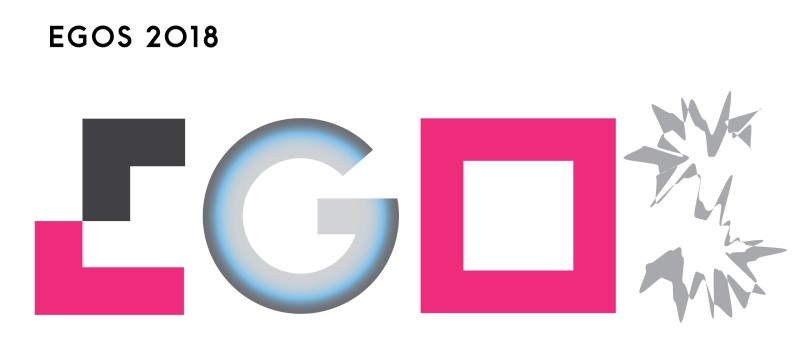Sub-theme 46: Events, the Agency of Time and Surprises in Organizing
Call for Papers
A process view of organizing suggests that coordinated actions are made possible by collective experiences that evolve
continuously through the creative re-construal of shared histories, and the simultaneous generation of alternative futures.
Prerequisite to the creative re-construal of shared histories are memories of the past histories. Memories can be semantic
or episodic. Semantic memory refers to the memory of general knowledge, meanings, and words without involving a memory of
the specific event, while the episodic memory includes reference to oneself as a participant in the episode or event (Abram
et al., 2014). Bakken et al. (2013, p.18) argue that “any mention of an event includes a reference to time, and vice versa…”
Via episodic memory humans can enact events not only from their recent past but also from the more distant past, while the
longer reach to the past is associated with the longer reach to the future (Abram et al., 2014; Bakken et al., 2013). The
importance of episodic memory is based on its contribution to “the ability to remember events experienced in the past and
to imagine (or plan) events that could (or will) happen in the future (which) is essential in our daily lives” (Abram et al.,
2014, p. 76). Thus, episodic memory presupposes events, and it enables humans to re- and pre-experience specific events without
forcing chronological constraints.
The importance of events highlighted by episodic memory resonates with
the view of event-based time where time is seen as active. The view of event-based time accounts for an active view of time
and gives it agency (Emirbayer & Mische, 1998; Hernes, 2014) by stressing that time as events is enacted. Based on that
view, actors are not observing time in events (Adam, 1990; Clark, 1985) and neither do they arrange events sequentially (e.g.
Jay, 2013; Langley et al., 2013; van Oorschot et al., 2013). Instead, they are in events, and in events they take part in
the on-going construction of events, including the one they are in (Hussenot & Missonier, 2016). Being in events means
that actors are in the on-going present (Schultz & Hernes, 2013), where the simultaneous enactment of the past and expected
events is allowing transcendence of events (Griesbach & Grand, 2013; Hussenot & Missonier, 2016).
This
view of time as active and enacted in events invites a fresh approach to study organizational life. We ask therefore, how
transcendence of events may suddenly change possible event trajectories, create surprises, and how the agentic nature of time
and transcendence of events may impact temporality of organization or organizing through their impact on strategizing, leadership,
decision-making, learning, narrating, sensemaking, and innovating. Further, we invite our colleagues to reflect on time enacted
in events in their own practices as researchers.
We welcome contributions on the philosophical nature of
time in events (its immanence, its transcendence, its fleeting nature) and on the various analytical conceptualizations of
time and temporality in organizational research. Theoretical papers, for example, may take the form of speculative inquiries
stimulated by works in philosophy, theology, or sociology, while empirical papers may address a wide range of phenomena beyond
those of formal organization. In particular, we invite reviews that probe lacunae and suggest remedies in organization studies.
Recent developments have seen the emergence of concepts such as “episodes”, “events”, “experiences” or “moments” and ideas
of interpretation, embodiment or enactment. Studies that build on these themes and critically challenge them are welcomed.
Potential topics for submissions might include (but are not limited to):
Events, transcendence of events and time in events
Agency of time (in events)
The dynamics of temporal agency
Continuity as an on-going balancing between stability and change
Narratives and temporal experience
The nature of temporal experience in organizations
The nature of temporality of organizing
Leadership as imagining different pasts and futures
Strategic change as enactment of different past and future events
How does a view of actors embedded in time enable other constructs (such as organizational identity, culture, strategy, change, and leadership) to be understood differently?
References
- Abram, M., Picard, L., Navarro, B., & Piolino, P. (2014): “Mechanisms of remembering the past and imagining the future – New data from autobiographical memory tasks in a lifespan approach.” Consciousness and Cognition, 29, 76–89.
- Adam, B. (1990): Time and Social Theory. Oxford, UK: Polity Press.
- Bakken, T., Holt, R., & Zundel, M. (2013): “Time and play in management practice: An investigation through the philosophies of McTaggart and Heidegger.” Scandinavian Journal of Management, 29, 13–22.
- Clark, P. (1985): “A review of the theories of time and structure for organizational sociology.” In: S.B. Bacharach & S.M. Mitchel (eds.): Research in the sociology of organizations, Vol. 4. Bingley: Emerald, 35–79.
- Emirbayer, M., & Mische, A. (1998): “What is agency?” American Journal of Sociology, 103 (4), 962–1023.
- Griesbach, D., & Grand, S. (2013): “Managing as transcending: An ethnography.” Scandinavian Journal of Management, 29, 63–77.
- Hernes, T. (2014): A Process Theory of Organization. Oxford: Oxford University Press.
- Hussenot, A., & Missonier, S. (2016): “Encompassing Stability and Novelty in Organization Studies: An Eventsbased Approach.” Organization Studies, 37 (4), 523–246.
- Jay, J. (2013): “Navigating Paradox as a Mechanism of Change and Innovation in Hybrid Organizations.” Academy of Management Journal, 56 (1), 137–159.
- Langley, A., Smallman, C., Tsoukas, H., & van de Ven, A.H. (2013): “Process Studies of Change in Organization and Management: Unveiling Temporality, Activity, and Flow.” Academy of Management Journal, 56 (1), 1–13.
- Schultz, M., & Hernes, T. (2013): “A temporal perspective on organizational identity.” Organization Science, 24 (1), 1–21.
- van Oorschot, K.E., Akkermans, H., Sengupta, K., & van Wassenhove, L.N. (2013): “Anatomy of a Decision Trap in Complex New Product Development Projects.” Academy of Management Journal, 56 (1), 285–307.


